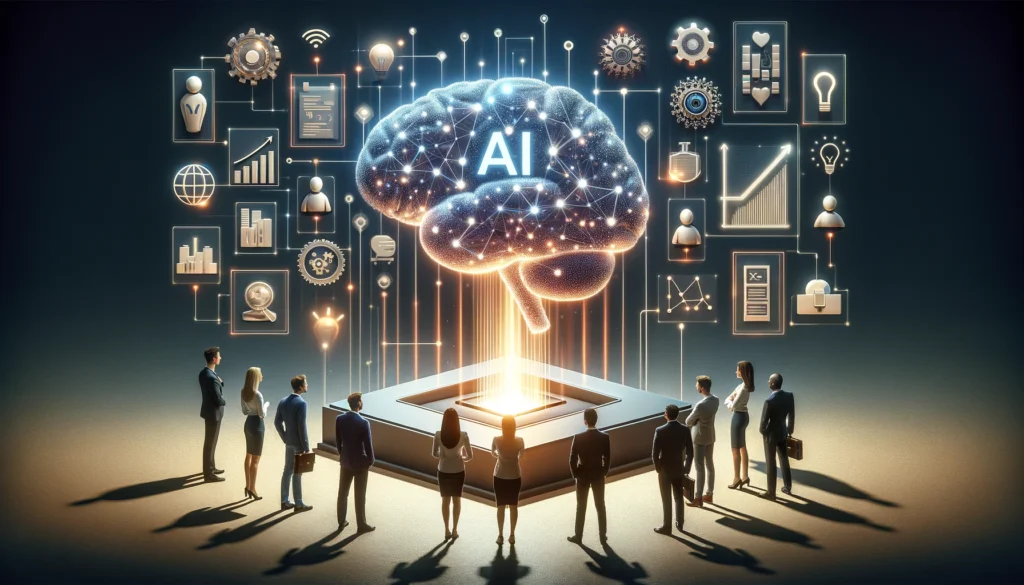Introduction
Artificial Intelligence (AI) is no longer just a futuristic buzzword—it’s a practical tool that small businesses are already using in 2025. From customer service chatbots to automated marketing campaigns, AI is reshaping the way small and medium-sized enterprises (SMEs) operate.
For decades, advanced technologies were limited to big corporations with huge budgets. But today, AI-powered solutions are accessible, affordable, and customizable, making them a game-changer for small businesses.
In this blog, we’ll explore how AI impacts small businesses in 2025, the benefits and challenges, and the best AI tools every entrepreneur should consider.
Why AI Matters for Small Businesses in 2025
Artificial Intelligence is not just about robots or futuristic machines. In simple terms, AI helps businesses analyze data, make smarter decisions, and automate repetitive tasks.
Key reasons why AI is important for SMEs:
-
Cost efficiency – Automating tasks saves money on labor and reduces errors.
-
Customer experience – Chatbots, recommendation engines, and AI assistants improve service.
-
Data-driven decisions – Small businesses can compete with big companies using AI analytics.
-
Scalability – AI allows small teams to achieve big results without massive staff.
In 2025, adopting AI is no longer optional—it’s becoming a competitive necessity.
Major Areas Where AI Is Transforming Small Businesses
1. Customer Service & Support
AI-powered chatbots and virtual assistants provide 24/7 support, answering common queries instantly. Tools like ChatGPT, Drift, and Tidio are popular among small businesses.
-
Reduces wait times for customers.
-
Provides personalized recommendations.
-
Cuts down the need for large customer service teams.
💡 Example: A small e-commerce store can use a chatbot to handle FAQs about shipping, returns, and product recommendations—freeing up human staff for complex issues.
2. Marketing & Advertising
AI helps small businesses run smarter ad campaigns with limited budgets. Platforms like Google Ads, Meta Ads, and LinkedIn now use AI to optimize targeting.
-
AI analyzes customer behavior to show ads to the right people.
-
AI email marketing tools personalize subject lines and recommendations.
-
AI content tools help write blogs, captions, and product descriptions.
📌 Popular Tools in 2025: Jasper AI, Copy.ai, SurferSEO
3. Sales & Lead Generation
AI-powered CRM (Customer Relationship Management) systems like HubSpot AI and Salesforce Einstein help track customer journeys, predict buying behavior, and automate follow-ups.
-
Increases conversion rates by sending offers at the right time.
-
Provides insights on customer needs.
-
Automates repetitive sales tasks like follow-up emails.
4. Operations & Workflow Automation
AI-driven automation helps small businesses save time and reduce manual work.
-
Inventory Management – Predict demand and avoid overstocking.
-
Scheduling – AI assistants like Calendly with AI integration manage appointments.
-
Accounting & Finance – AI tools like QuickBooks AI automate bookkeeping.
5. Product Development & Innovation
Small businesses can use AI to analyze market trends, customer reviews, and competitor data to improve products.
For example:
-
AI tools scan online reviews to identify customer complaints.
-
AI simulations predict how new product features will perform.
This allows small businesses to innovate faster without spending millions.
Benefits of AI for Small Businesses in 2025
1. Cost Reduction
AI reduces the need for hiring large teams by automating repetitive tasks.
2. Improved Customer Experience
AI personalizes recommendations, provides instant support, and builds trust.
3. Smarter Decision-Making
AI analytics help identify market trends, customer behavior, and future opportunities.
4. Competitive Advantage
Businesses that use AI stand out against competitors who still rely on traditional methods.
5. Growth & Scalability
AI enables small teams to handle large-scale operations efficiently.
Challenges Small Businesses Face with AI
While AI is powerful, small businesses also face challenges in 2025:
-
Cost of implementation – Some advanced AI tools are still expensive.
-
Lack of expertise – Many SMEs struggle with technical knowledge.
-
Data privacy concerns – Customers demand transparency on how their data is used.
-
Over-reliance on AI – Businesses risk losing the human touch in customer relationships.
Top AI Tools for Small Businesses in 2025
Here are some AI-powered tools every small business should know about:
-
ChatGPT & Jasper AI – Content creation & customer service.
-
Grammarly AI – Smart writing assistant.
-
QuickBooks AI – Accounting and financial management.
-
HubSpot AI – CRM & sales automation.
-
Canva AI – Graphic design for non-designers.
-
Tidio AI Chatbot – Customer support automation.
Real-Life Examples of AI in Small Businesses
-
Local Café – Uses AI for inventory management, reducing food waste by 30%.
-
Freelancer Agency – Automates proposals and invoices with AI, saving 20 hours monthly.
-
E-commerce Store – Increases sales 25% using AI recommendation engines.
Future of AI for Small Businesses (2025 & Beyond)
By 2030, AI will be even more integrated into small businesses:
-
Voice AI shopping will become normal.
-
AI-powered hiring will help small businesses recruit talent quickly.
-
AI-driven sustainability will help businesses reduce carbon footprints.
The businesses that adapt early in 2025 will be the ones leading in the next decade.
FAQs About AI and Small Businesses
Q1. Is AI too expensive for small businesses?
Not anymore. Many AI tools now offer affordable subscription models starting as low as $20/month.
Q2. Will AI replace human employees?
AI automates repetitive tasks, but humans are still needed for creativity, emotional intelligence, and strategy.
Q3. How can a non-technical small business owner use AI?
Most AI tools are user-friendly with no coding required. Platforms like Canva AI or ChatGPT are easy for beginners.
Q4. What industries benefit most from AI in 2025?
Retail, healthcare, e-commerce, marketing agencies, and service businesses are seeing the biggest impact.
Conclusion
Artificial Intelligence in 2025 is no longer a luxury—it’s a necessity for small businesses. From customer service to marketing, sales, and operations, AI helps SMEs save money, improve customer experiences, and scale faster.
The key is not to fear AI but to use it as a partner. Small businesses that adopt AI today will gain a competitive edge for the future.
